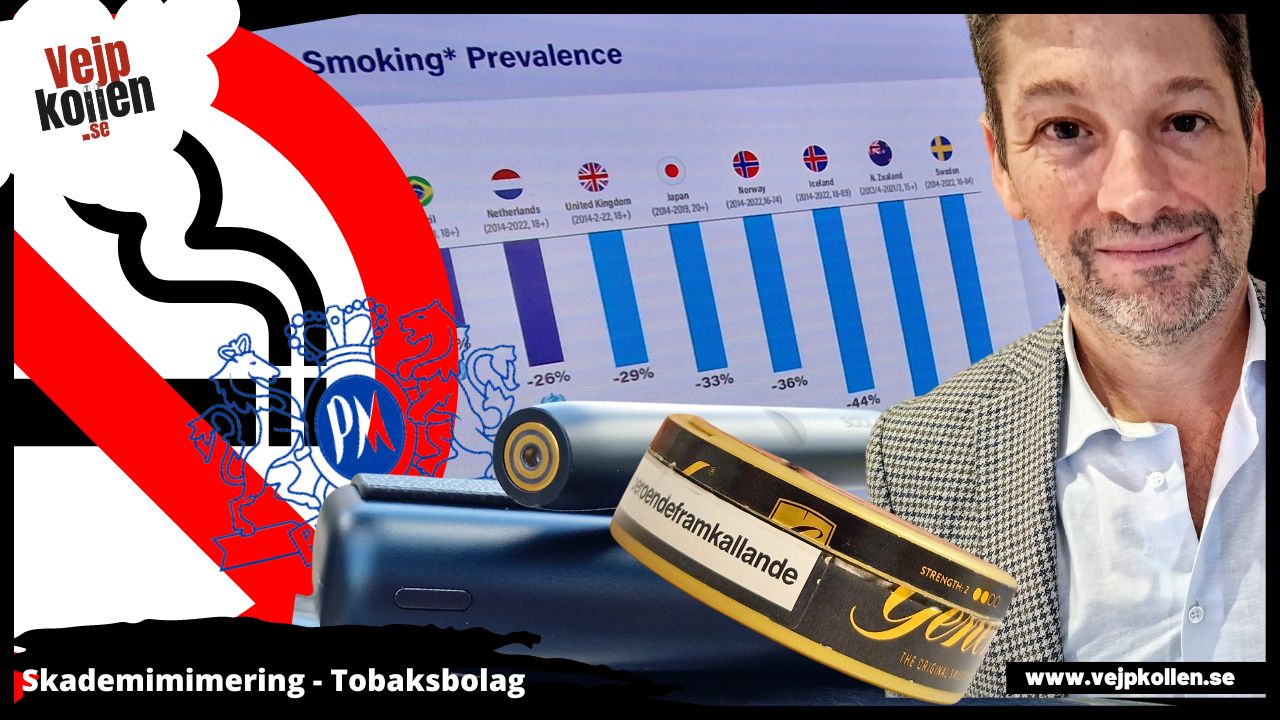The number of smokers switching to heated tobacco is increasing, with 28 million ex-smokers now using the best-known system, IQOS, produced by the tobacco company Phillip Morris. At the same time, cigarette sales are declining.
"Our goal is to have 50 per cent of our revenue come from smoke-free products by 2025, and we have already reached that goal in 25 countries." Says Tommaso Di Giovanni, Vice President of Communications at Philip Morris.
Philip Morris presented its annual report on sustainability, harm reduction and illegal markets at a press conference in Paris this week. And between numbers and statistics, the tobacco company did not hide the fact that it considers the recent years' focus on smoke-free products as successful.
"We come from selling only cigarettes. Since 2008, we have invested almost 12.5 billion in developing and creating alternatives to cigarettes and now we are seeing the results." says Deputy Head of Communications Tommaso Di Giovanni.
Snus has a major impact
Since Philip Morris bought Swedish snus company Swedish Match, the company has taken a big step towards achieving its goal, says Tommaso Di Giovanni. Among the smoke-free customers that PMI itself counts, snus or nicotine pouches account for about 11 per cent. However, the rest are IQOS and to some extent e-cigarettes. Japan and some European countries stand out in the statistics.
'We estimate that 33 million of our customers have switched to smoke-free products. 28.6 million use IQOS. In Hungary, for example, IQOS accounts for 30 per cent of revenues. We also see that it is a metropolitan phenomenon; in Vilnius and Rome, for example, sales have increased significantly."
Cigarette sales decline
PMI has repeatedly emphasised that legislation and information on smoke-free products play a key role in addition to company investments in smoke-free nicotine. Tommaso Di Giovanni says this is also evident in the statistics.
"But the nicotine market is huge. In Europe, an average of 20 per cent of the population smokes. This is much lower in some countries like Sweden, Norway and the UK and much higher in others, like France."
'WHO's tactics are outdated'
In France, nearly 30 per cent of the population. This is despite the fact that the country has invested heavily in various forms of restriction and prevention, not least through sharply increased tobacco taxes. This is one of several tools recommended by the WHO to reduce smoking. The WHO also recommends that legislation should not differentiate between different nicotine products in relation to the risk of harm. Something that Tommaso Di Giovanni and PMI are critical of.
"France has chosen not to distinguish between smoking and non-smoking products in its legislation. Nor does it encourage smokers to choose other alternatives. Instead, they have chosen to raise taxes. Smoking has not decreased; instead, a third of cigarette sales have moved to the black market. Every tenth cigarette in France is illegal." says Tommaso Di Giovanni.
"Learn from the countries that succeed"
According to Mr Di Giovanni, countries like France, and by extension the WHO, should learn from the countries where smoking is declining the fastest.
"Cigarette sales have fallen fastest in countries where alternatives are allowed and encouraged. Sweden is a good example of this working, although the importance of snus is very much a local tradition. But the UK is also leading the way by actively encouraging smokers to switch to e-cigarettes. There, smoking is down to 14 per cent. This compares to 30% in France, which has chosen not to even allow retailers to properly inform customers about the products.
"Important to distinguish smoking from non-smoking"
Mr Di Giovanni also highlighted Greece as a pioneer together with Sweden in the EU.
"Greece was the first to clearly differentiate between smoke-free products and smoking products in its legislation. Sweden has not done this, but will instead reduce the tax on snus and increase it on cigarettes. These are measures that matter and influence smokers' behaviour in a positive way," he said.




